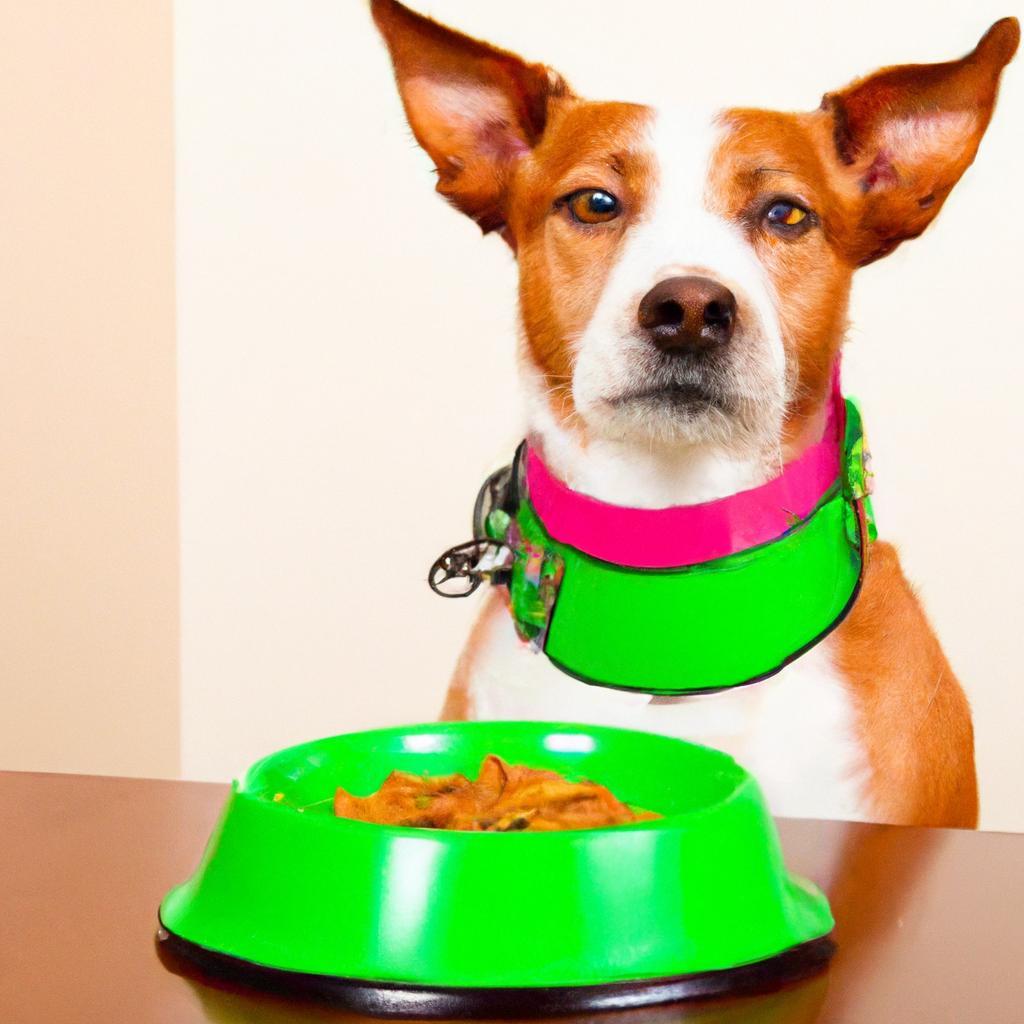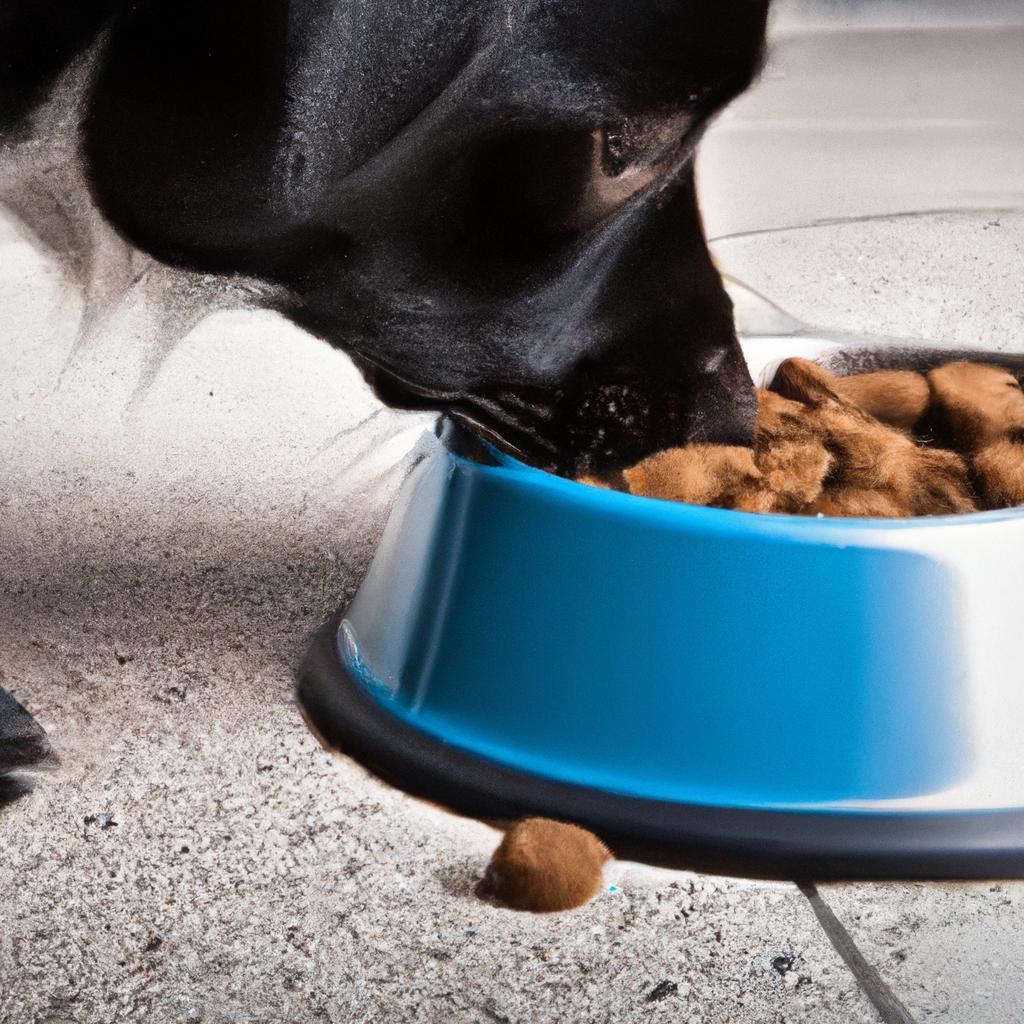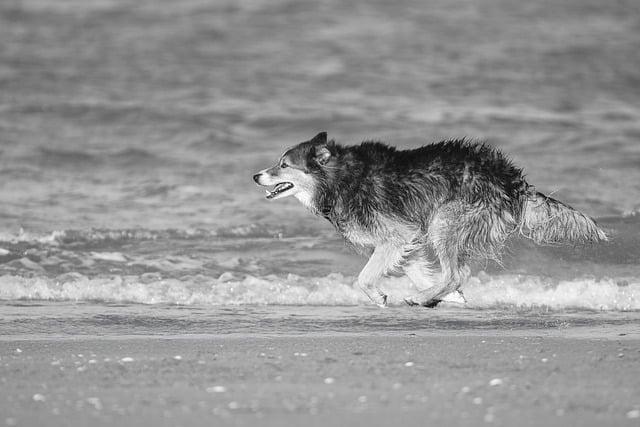Imagine coming home after a long day, only to find your dog staring at an empty bowl, tail wagging in anticipation. You might think, “Should I leave food out all day for my furry friend?” While it seems convenient, this practice can lead to overeating, obesity, and even behavioral issues. Dogs thrive on routine and portion control. Instead, establish a feeding schedule that promotes health and happiness. Your dog deserves the best, and a balanced diet is key to a long, vibrant life. Make the right choice for their well-being!
Contents
- Understanding Your Dogs Nutritional Needs
- The Risks of Leaving Food Out All Day
- Establishing a Healthy Feeding Routine
- Practical Tips for Managing Your Dogs Meals
- Q&A
Understanding Your Dogs Nutritional Needs
When considering whether to leave food out for your dog throughout the day, it’s essential to understand their unique nutritional needs. Dogs, like humans, require a balanced diet that includes proteins, fats, carbohydrates, vitamins, and minerals. However, the way they consume their food can significantly impact their overall health and well-being. By allowing free access to food, you may inadvertently encourage overeating, leading to obesity and related health issues.
Moreover, dogs thrive on routine. Establishing a consistent feeding schedule helps regulate their metabolism and can prevent behavioral problems associated with food anxiety. Feeding your dog at specific times not only allows you to monitor their intake but also reinforces good habits. Consider the following benefits of scheduled feeding:
- Weight Management: Controlled portions help maintain a healthy weight.
- Digestive Health: Regular feeding times promote better digestion.
- Behavioral Stability: Dogs feel more secure with a predictable routine.
Another critical aspect to consider is the quality of the food you provide. Not all dog foods are created equal, and some may contain fillers or low-quality ingredients that do not meet your dog’s nutritional needs. When you choose to leave food out all day, you may not have control over how much your dog consumes, which can lead to an imbalance in their diet. It’s crucial to select high-quality dog food that is appropriate for your dog’s age, size, and activity level.
Lastly, consider your dog’s individual preferences and habits. Some dogs may graze throughout the day, while others may prefer to eat their meals all at once. Observing your dog’s behavior can provide insights into their eating patterns and help you make informed decisions about their feeding routine. Ultimately, understanding your dog’s nutritional needs and establishing a structured feeding schedule can lead to a healthier, happier life for your furry companion.
The Risks of Leaving Food Out All Day
Leaving food out for your dog throughout the day may seem convenient, but it can pose several risks that every pet owner should consider. First and foremost, **bacterial growth** is a significant concern. When food is left at room temperature, it creates an ideal environment for harmful bacteria to thrive. This can lead to foodborne illnesses that not only affect your dog but can also pose a risk to humans in the household.
Additionally, **food spoilage** is another critical factor. Even dry kibble can lose its nutritional value and become stale when exposed to air and moisture for extended periods. Wet food is particularly susceptible to spoilage, which can lead to unpleasant odors and a loss of palatability. Dogs may refuse to eat spoiled food, leading to unnecessary waste and potential nutritional deficiencies.
Moreover, leaving food out all day can encourage **picky eating habits** in dogs. When food is constantly available, your pet may become less motivated to eat at regular meal times. This can disrupt their feeding schedule and lead to overeating or grazing, which can contribute to obesity and other health issues. Establishing a routine helps maintain a healthy weight and ensures your dog receives the right amount of nutrients.
Lastly, there’s the risk of **attracting pests**. Open food can attract insects, rodents, and other animals, which can pose additional health risks to your dog. These pests can carry diseases and may even consume or contaminate the food, making it unsafe for your pet. Keeping food covered and stored properly not only protects your dog’s health but also maintains a clean and safe environment in your home.
Establishing a Healthy Feeding Routine
Creating a consistent feeding schedule for your dog is essential for their overall health and well-being. Dogs thrive on routine, and establishing specific meal times can help regulate their digestion and metabolism. By providing meals at the same time each day, you can foster a sense of security and predictability, which is particularly beneficial for anxious or easily stressed dogs.
When considering whether to leave food out all day, it’s important to recognize that not all dogs will self-regulate their eating habits. Some may graze throughout the day, while others might overeat if food is constantly available. This can lead to obesity and other health issues. Instead, offering meals at designated times encourages your dog to eat when food is presented, promoting a healthier relationship with their diet.
In addition to meal timing, the type of food you provide plays a crucial role in . Opt for high-quality, nutritionally balanced dog food that meets your pet’s specific needs. Consider factors such as age, size, and activity level when selecting the right food. This ensures that your dog receives the necessary nutrients to thrive, supporting their energy levels and overall health.
Lastly, incorporating positive reinforcement during mealtime can enhance your dog’s feeding experience. Use this time to bond with your pet, offering praise and affection as they eat. This not only reinforces good behavior but also helps your dog associate mealtime with positive feelings. By prioritizing a structured feeding routine, you set the foundation for a happier, healthier life for your furry companion.
Practical Tips for Managing Your Dogs Meals
Managing your dog’s meals effectively can significantly impact their health and behavior. One of the most common questions pet owners face is whether to leave food out all day or to establish a structured feeding schedule. While it might seem convenient to allow your dog to graze throughout the day, this approach can lead to several issues, including obesity and behavioral problems.
Instead of free-feeding, consider implementing a set feeding schedule. This method not only helps regulate your dog’s weight but also creates a routine that can enhance their overall well-being. By feeding your dog at the same times each day, you can help them develop a sense of security and predictability, which is essential for their mental health. Here are some benefits of a structured feeding routine:
- Weight Management: Controlled portions help prevent overeating and obesity.
- Digestive Health: Regular feeding times can promote better digestion and reduce the risk of gastrointestinal issues.
- Behavioral Benefits: A routine can decrease anxiety and destructive behaviors associated with food scarcity.
When deciding on portion sizes, consult with your veterinarian to determine the appropriate amount based on your dog’s age, breed, and activity level. Measuring your dog’s food can prevent overfeeding and ensure they receive the right nutrients. Additionally, consider using interactive feeding toys or puzzle feeders to make mealtime more engaging and mentally stimulating. This not only slows down their eating but also provides an opportunity for exercise and play, further enhancing their quality of life.
Q&A
-
Is it safe to leave food out for my dog all day?
Leaving food out all day can lead to spoilage, especially in warm environments. Bacteria can grow on wet food, posing health risks to your dog. It’s best to provide meals at specific times to ensure freshness and safety.
-
Will my dog overeat if food is left out?
Many dogs will eat beyond their needs if food is available all day, leading to obesity and related health issues. Establishing a feeding schedule helps control portion sizes and maintain a healthy weight.
-
What if my dog is a picky eater?
Picky eaters may benefit from having food available throughout the day, but this can also reinforce bad habits. Instead, try offering meals at set times and removing uneaten food after a certain period to encourage regular eating habits.
-
How can I ensure my dog stays hydrated?
Regardless of feeding practices, always provide fresh water. If you choose to leave food out, ensure your dog has access to clean water at all times to prevent dehydration.
while it may seem convenient to leave food out for your dog all day, the potential health risks and behavioral issues outweigh the benefits. Prioritizing your pet’s well-being with scheduled feeding times ensures a healthier, happier companion.

大家好,我是彼得潘,專業的手法身體治療師。我喜歡探索和研究各種主題,並透過與人工智慧的合作分享專業、實用、有趣的文章。我們定期進行人工審核,以確保內容的準確性。如果您發現文章中有任何不準確的地方,請隨時與我們聯繫,我們會及時糾正。您可以透過 [email protected] 與我們聯繫。



